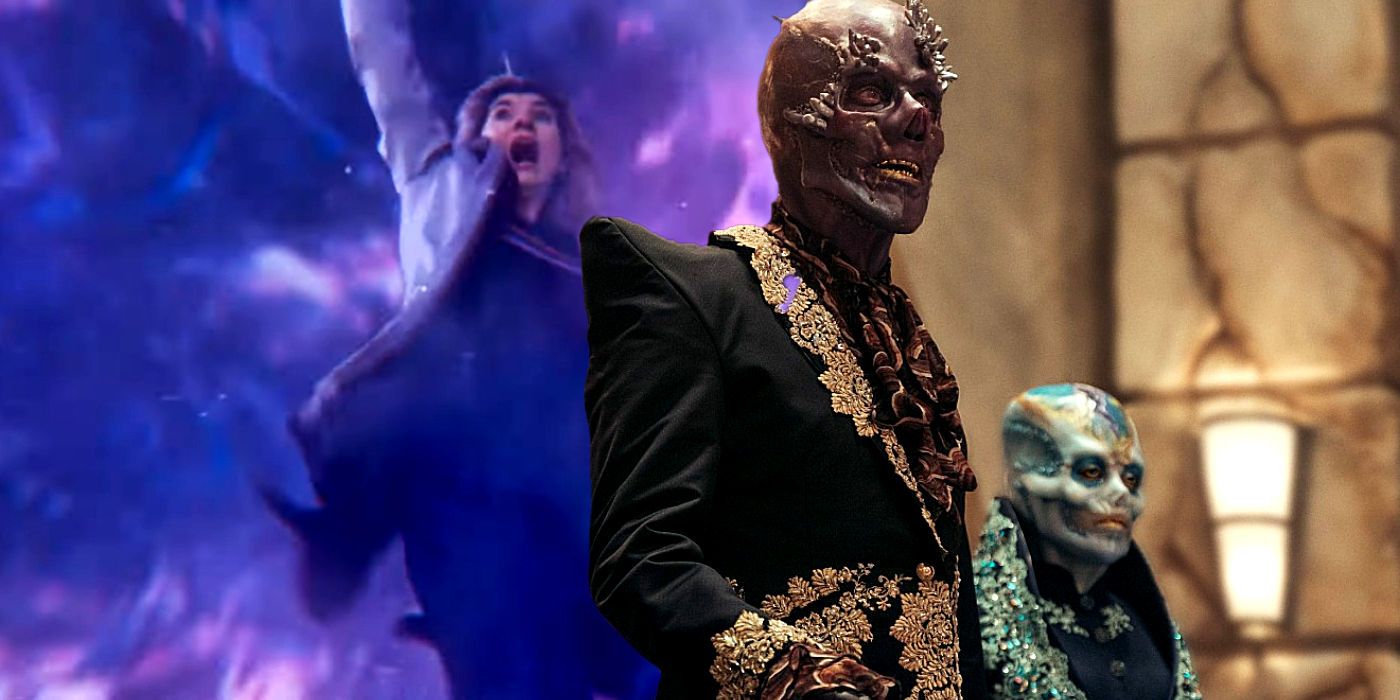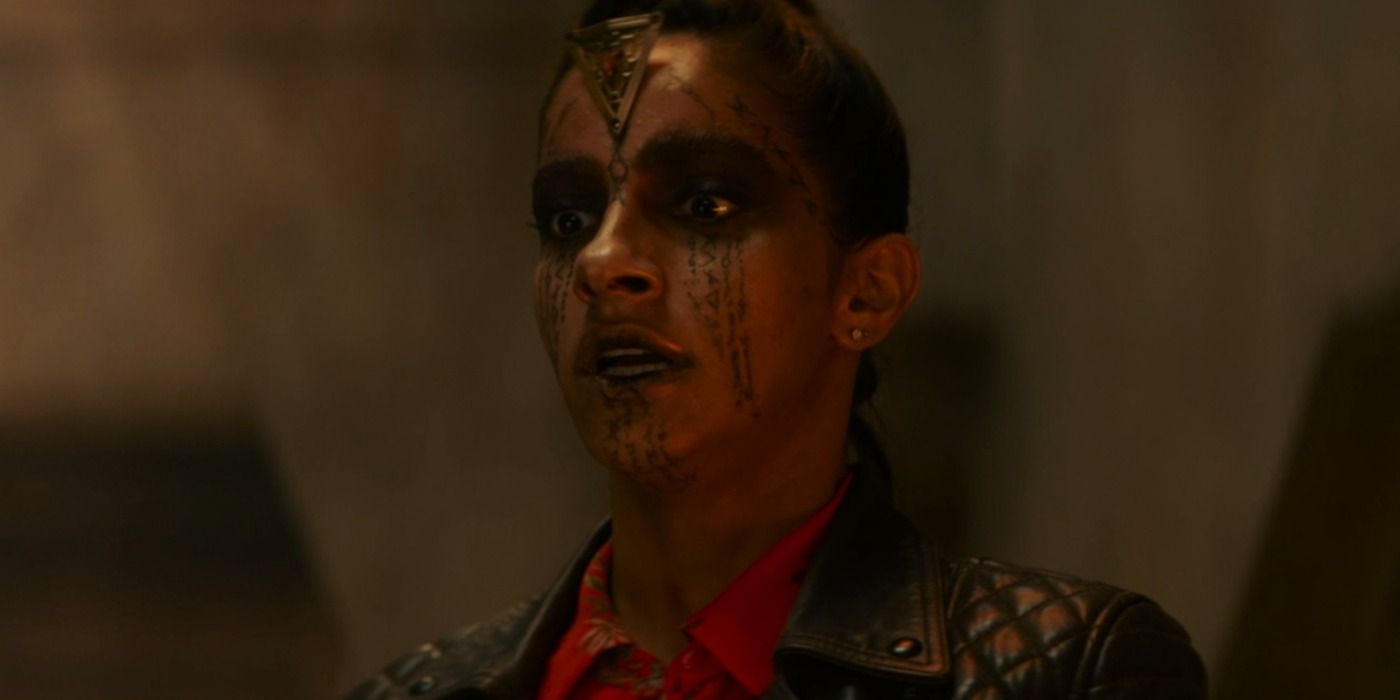Doctor Who season 13 is a dramatic improvement - but unfortunately, its marketing is destroying its own cliffhangers. The COVID-19 pandemic has forced current Doctor Who showrunner Chris Chibnall to change the series' format for season 13, taking a serialized approach in which this abbreviated six-episode season has a single overarching story. It's an adaptation of classic Doctor Who, complete with a cliffhanger ending for each episode.
Multi-episode stories were the norm for classic Doctor Who; there were only a couple of standalone, single-episode stories, with the most notable being 1983's spectacular anniversary story "The Five Doctors." Cliffhangers were, therefore, a rich Doctor Who tradition, sometimes effective - thank "The Caves of Androzani," where Peter Davison's Fifth Doctor delivered a speech as he crashed a spaceship - and sometimes absurd, including one in "Dragonfire" where Sylvester McCoy's Seventh Doctor literally walked round a corner and dropped off a cliff. So it's great to see Doctor Who bring the cliffhangers back, and so far they've been spectacular.
Unfortunately Doctor Who: Flux is sabotaging its own cliffhangers. So far, the first two episodes have both ended with apocalyptic cliffhangers in which the entire universe appeared to be threatened; but then, within mere moments, even as the credits rolled, the BBC dropped a trailer for the next episode. Viewers literally have mere seconds to reflect on the cliffhanger before they see shots of the Doctor and her companions in shots from the next episode. It's true nobody really believes a cliffhanger will bring about the Doctor's death, but the BBC should at least be giving audiences time to speculate and get excited about what they've just seen. Indeed, the trailer for Doctor Who season 13, episode 3 went one step further, because it mistakenly included a shot of Yaz; the cliffhanger ending of episode 2 saw Yaz trapped inside the Temple of Atropos, and while nobody will have really expected her to have died in that scene, viewers could reasonably have wondered if she'd be trapped there.
There's a sense in which Doctor Who season 13 should be viewed as an experiment, because its serialized format is different to anything seen since the show relaunched in 2005. Although a lot rests upon the ultimate payoff, right now the experiment looks as though it's going to be a successful one, because Chris Chibnall's writing has a newfound confidence. Still, the change in format means the BBC need to reconsider their marketing approach as well, adapting it the new structure. Up until now, Doctor Who season 13's marketing has been too secretive, leading to intense excitement about plot points that proved rather underwhelming; it's still bewildering why new companion Dan Lewis' profession as a plasterer was a big deal. But now, oddly enough, the marketing is making the opposite mistake - showing too much, too quickly.
There is, however, an easy way to correct this mistake. If a cliffhanger has done its job, then viewers will already be excited to tune in next week, meaning the immediate "next time" trailer drop isn't necessary. Instead, the BBC should drop this a little later, after Strictly Come Dancing's results show has aired on BBC1 and online. This simple change of marketing would fix Doctor Who's new cliffhanger problem at a stroke, and ensure the story lands as effectively as possible.


